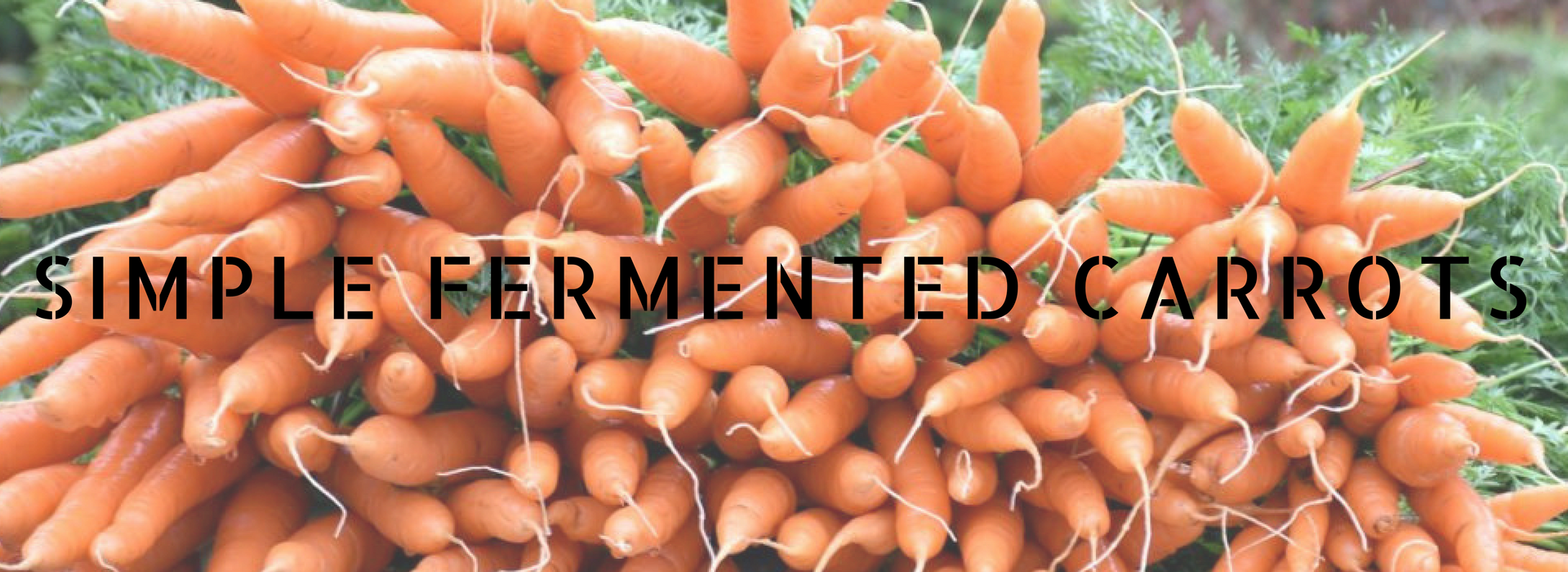These fermented carrots are a delicious and easy introduction to making your own probiotic foods. They’re crunchy and tangy and the garlic and ginger give them a bit of a kick.
Carrots are an excellent source of beta-carotene, which the body converts into vitamin A. They’re also a great source of fibre, and when fermented provide probiotics for the gut.
Ingredients:
750g organic carrots, peeled and chopped into lengths
600ml filtered water
2 tbsp sea salt
2-3 cloves garlic peeled
2-3 slices of ginger
Equipment:
1 litre preserving jar
Large mixing bowl
Whisk
Cheesecloth or similar fabric
Elastic band
Preserving weight (see tips)
Instructions:
In a large bowl make the brine by combining the salt and warm filtered water. Stir the mixture until the salt dissolves.
Place your carrots, garlic and ginger into your preserving jar and fill the jar with the brine. Make sure the carrots are completely submerged. You may need to use a weight (see tips).
Cover the jar with the cheesecloth and secure with the elastic band.
Place the jar somewhere warm, out of direct sunlight (20-25 degrees Celsius is perfect). Fermenting usually takes around 5-7 days. Taste them to check they’re ready. When they’re to your liking, seal the jar with a lid and store in fridge for up to a month.
Tips
- During the warmer months you’ll find that fermentation might occur faster than the recommended 5 days.
- Experiment with cloves, aniseed, coriander or fennel seeds for a different flavour.
- You’ll probably find you need to weigh the carrots down to keep them submerged. If they aren’t properly submerged in the brine then mould can start to grow. You can buy different sized weights from various suppliers. I am a bit old-fashioned and a bit stingy though! So I use a large cabbage leaf folded to roughly the size of my jar opening and then weigh this down with a palm-sized stone I found in the garden. Ensuring the cabbage is properly submerged will usually prevent mould.
